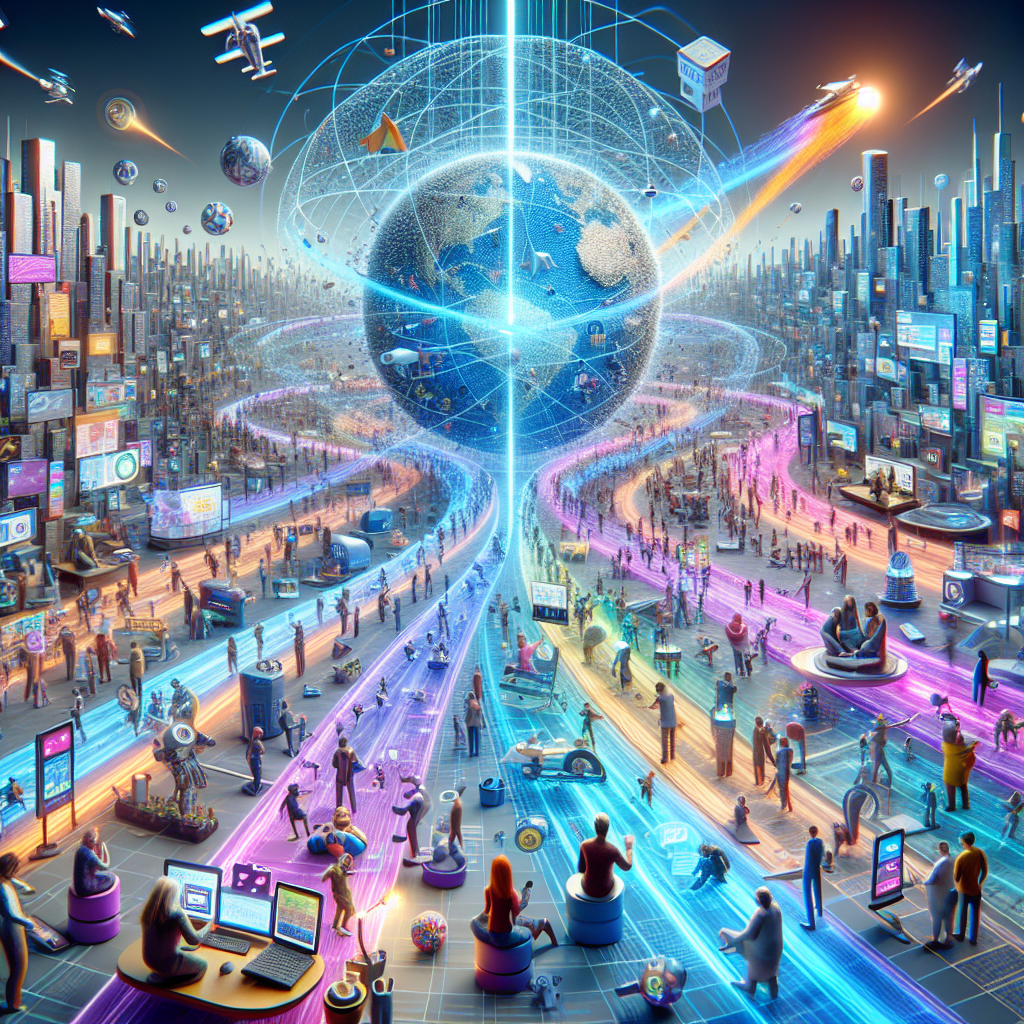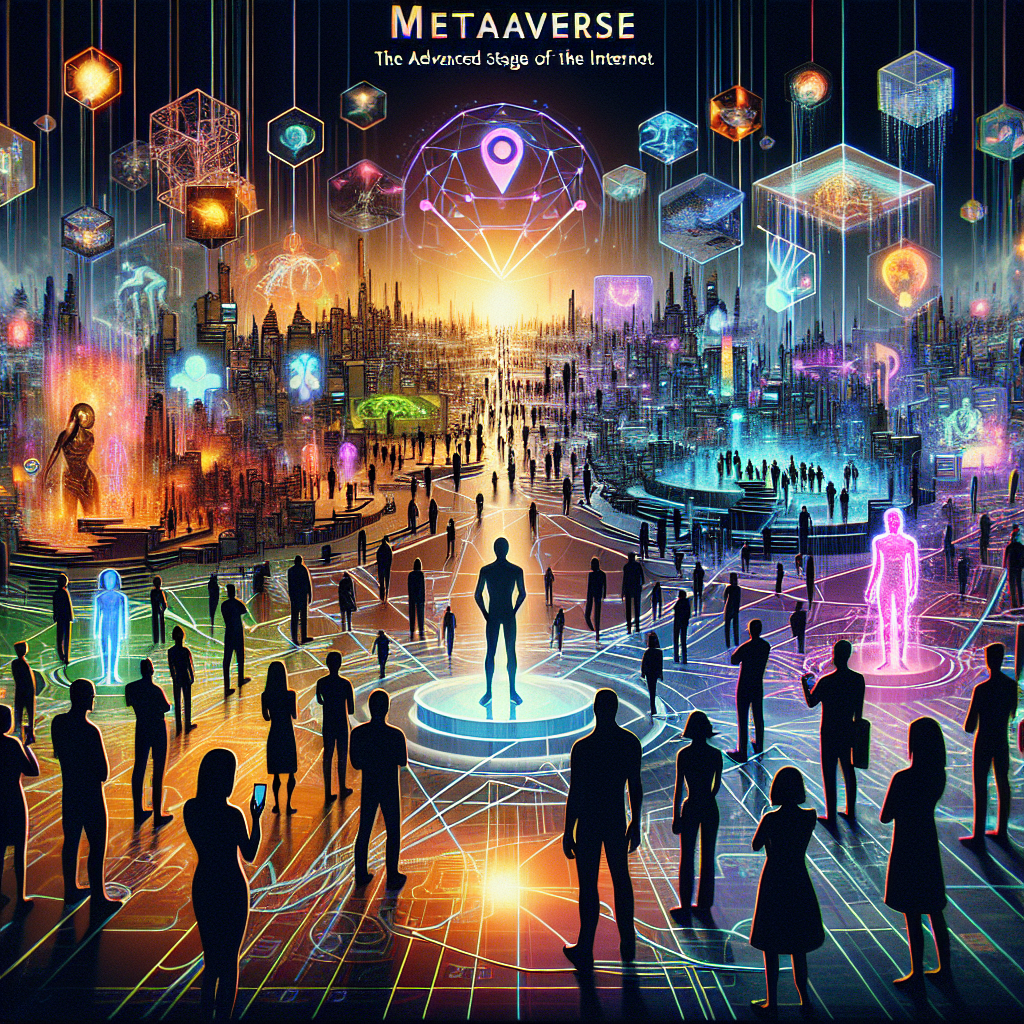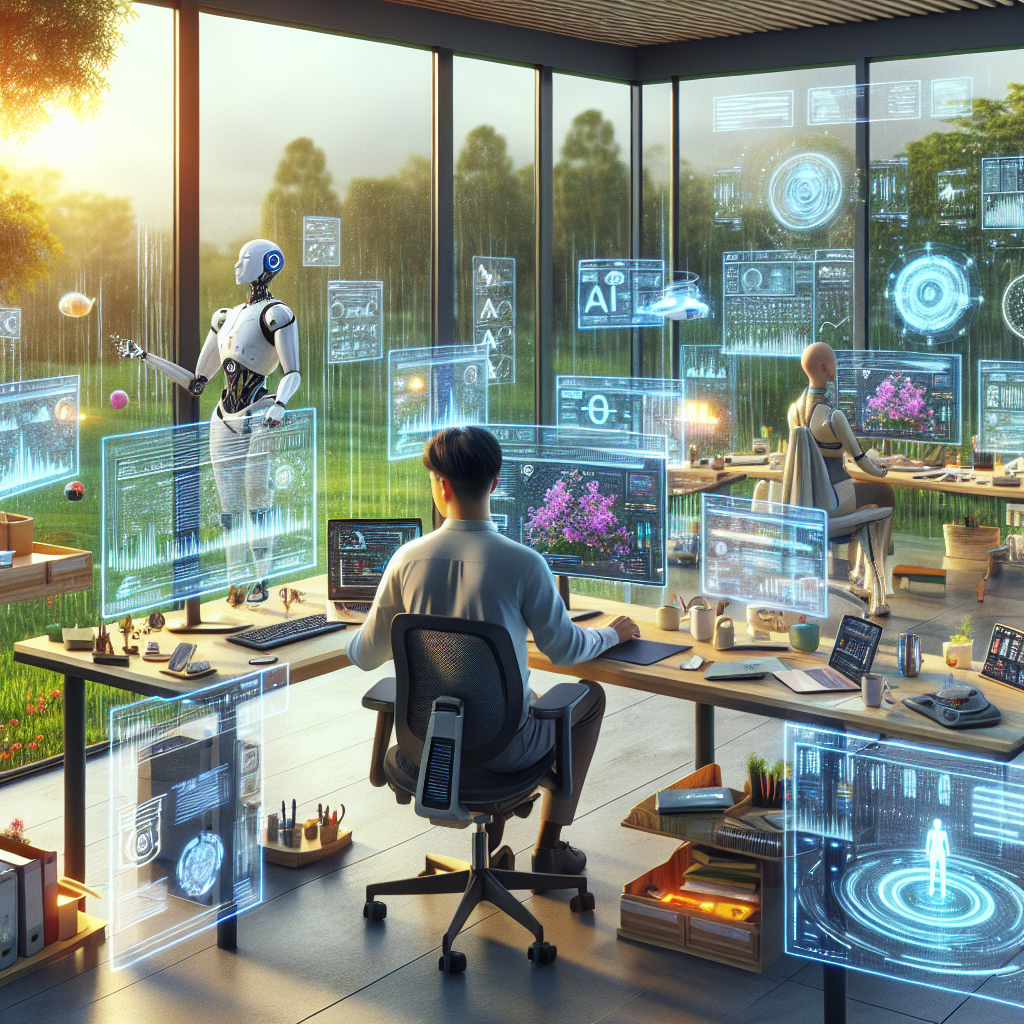-
Table of Contents
- Metaverse: The Next Chapter of the Internet
- What is the Metaverse?
- Key Technologies Powering the Metaverse
- Applications and Use Cases
- 1. Gaming and Entertainment
- 2. Education and Training
- 3. Remote Work and Collaboration
- 4. Retail and E-commerce
- Economic Impact and Market Potential
- Challenges and Concerns
- The Road Ahead
- Conclusion
Metaverse: The Next Chapter of the Internet

The internet has undergone several transformative phases since its inception—from static web pages in Web 1.0 to the interactive and social Web 2.0. Now, we stand on the brink of a new digital frontier: the Metaverse. Often described as the next chapter of the internet, the Metaverse promises to revolutionize how we interact, work, play, and live in the digital world. But what exactly is the Metaverse, and how will it shape our future?
What is the Metaverse?
The Metaverse is a collective virtual shared space, created by the convergence of virtually enhanced physical reality and physically persistent virtual spaces. It includes the sum of all virtual worlds, augmented reality (AR), and the internet. Unlike traditional digital experiences, the Metaverse is immersive, interactive, and persistent, meaning it continues to exist and evolve even when users are not logged in.
Popularized by science fiction and more recently by tech giants like Meta (formerly Facebook), the Metaverse is envisioned as a 3D internet where users can create avatars, socialize, attend events, shop, and even work in virtual environments. It is not a single platform but a network of interconnected digital spaces that offer a seamless experience across various devices and applications.
Key Technologies Powering the Metaverse
The development of the Metaverse relies on several cutting-edge technologies:
- Virtual Reality (VR) and Augmented Reality (AR): These technologies provide immersive experiences by simulating real-world environments or overlaying digital content onto the physical world.
- Blockchain: Blockchain enables decentralized ownership and digital scarcity, which are essential for virtual economies and assets like NFTs (non-fungible tokens).
- Artificial Intelligence (AI): AI powers intelligent avatars, content moderation, and personalized experiences within the Metaverse.
- 5G and Edge Computing: High-speed, low-latency networks are crucial for real-time interactions and seamless connectivity in virtual environments.
Applications and Use Cases
The Metaverse is not limited to gaming or entertainment. Its potential applications span across various industries:
1. Gaming and Entertainment
Gaming is currently the most developed sector within the Metaverse. Platforms like Roblox, Fortnite, and Decentraland offer immersive experiences where users can play, socialize, and even earn money. Virtual concerts, such as Travis Scott’s performance in Fortnite, have attracted millions of viewers, showcasing the potential of digital entertainment.
2. Education and Training
Virtual classrooms and training simulations are becoming increasingly popular. For example, medical students can practice surgeries in VR environments, while companies use AR for employee training. The Metaverse can make education more accessible and engaging by offering interactive and personalized learning experiences.
3. Remote Work and Collaboration
With the rise of remote work, the Metaverse offers new ways to collaborate. Virtual offices and meeting rooms allow employees to interact as avatars, share documents, and brainstorm in real-time. Microsoft’s Mesh and Meta’s Horizon Workrooms are early examples of how workspaces are evolving in the Metaverse.
4. Retail and E-commerce
Brands are exploring virtual storefronts and showrooms where customers can try on clothes using AR or walk through digital stores. Companies like Nike and Gucci have launched virtual products and experiences, tapping into the growing market of digital fashion and collectibles.
Economic Impact and Market Potential
The Metaverse is expected to become a multi-trillion-dollar industry. According to a report by McKinsey & Company, the Metaverse could generate up to $5 trillion in value by 2030. Investments are pouring in from major tech companies, venture capitalists, and startups alike. Meta alone has invested over $10 billion annually in its Reality Labs division to develop Metaverse technologies.
Digital assets such as NFTs and virtual real estate are also gaining traction. In 2021, a plot of virtual land in Decentraland sold for $2.4 million, highlighting the growing demand for digital ownership. As the Metaverse economy expands, new job roles such as virtual architects, digital fashion designers, and Metaverse marketers are emerging.
Challenges and Concerns
Despite its promise, the Metaverse faces several challenges:
- Privacy and Security: With increased data collection and surveillance, ensuring user privacy and data protection is critical.
- Digital Divide: Access to high-speed internet and advanced devices is still limited in many parts of the world, potentially excluding large populations.
- Interoperability: For a truly connected Metaverse, platforms must be interoperable, allowing users to move assets and identities across different virtual spaces.
- Regulation: Governments and regulatory bodies are still grappling with how to govern digital assets, virtual currencies, and online behavior in the Metaverse.
The Road Ahead
The Metaverse is still in its early stages, but its development is accelerating rapidly. As technology matures and adoption increases, we can expect more sophisticated and inclusive virtual experiences. Collaboration among tech companies, policymakers, and users will be essential to build a Metaverse that is safe, equitable, and beneficial for all.
Moreover, ethical considerations must be at the forefront. Issues such as digital identity, consent, and mental health in virtual environments need to be addressed proactively to ensure a positive impact on society.
Conclusion
The Metaverse represents a bold vision for the future of the internet—one that is immersive, interactive, and deeply integrated into our daily lives. While challenges remain, the potential benefits across education, work, entertainment, and commerce are immense. As we navigate this next chapter of the internet, it is crucial to shape the Metaverse thoughtfully and inclusively, ensuring it enhances human connection and creativity rather than replacing it. The journey has just begun, and the possibilities are as limitless as our imagination.


